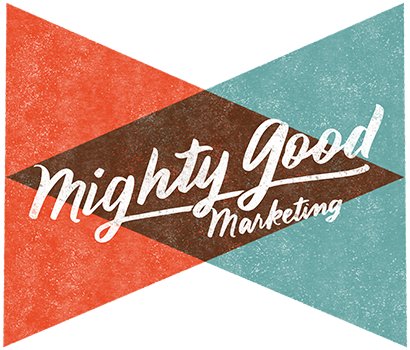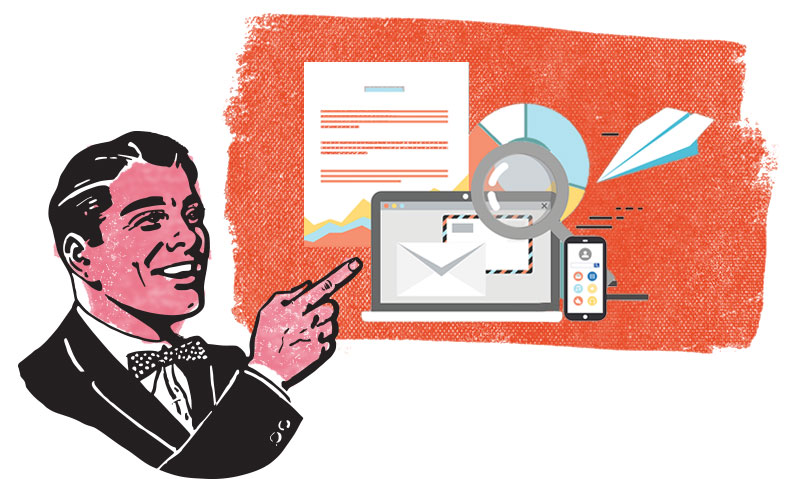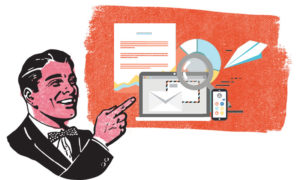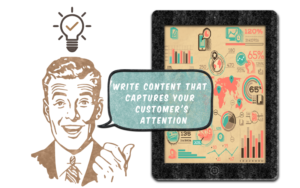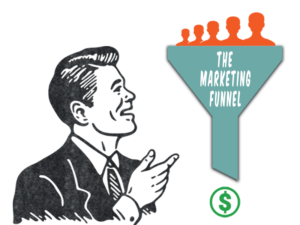What is Email Marketing & Why Does My Business Need It?
Specifically, email marketing is the practice of sending out targeted email campaigns in an effort to nurture leads, optimize conversions, and build your brand. This type of direct marketing has been in use for many decades—and for good reason. When done right, it’s extremely effective, and it doesn’t have to cost your business a lot to execute.
Explore the many different types of email marketing campaigns, as well as some best practices for developing and launching a successful email campaign for your brand.
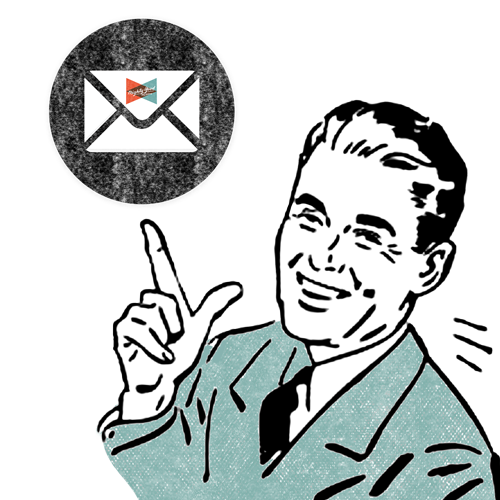
Benefits of Email Marketing
Generate and Nurture Leads
Getting prospective customers to opt in to an email list is a great way to generate new leads. And once you’ve got a prospective customer on your list, you can use email to nurture that lead by sending useful and personalized content their way.
Get Your Content Out
There
You spend a lot of time maintaining your blog and creating new content. Email marketing makes it easy to share and promote your content to people who have already shown interest in your brand’s services or products.
Build Brand
Awareness
Even if your lead isn’t ready to make a purchase or commit to your services just yet, seeing your brand name in his or her inbox will build awareness. When the time comes for your target customer to make a decision on a particular product or service, your brand name will be at the forefront.
Build Relationships
With Customers
Email marketing is a great way to stay in touch with your customers and prospective customers—especially the ones who don’t necessarily use social media. Rather than spending the money to reach out to them via print marketing, email marketing is cost-effective—and you can send out emails as often as you want at essentially no cost to you.
Enjoy a Great ROI
Different Types of Email Marketing Campaigns
When it comes to email marketing campaigns, there are many to choose from. If you’ve ever been part of a company’s email list, you’ll probably be familiar with some (or all) of these.
Welcome Emails
This is the email that’s sent out to you when you opt into a company’s email list. You may have entered your email address on the company’s website, for example, in exchange for a promotional coupon or discount code on your first purchase with them. Welcome emails are an opportunity for your brand to make a great first impression with a lead and should be carefully crafted.
Newsletter Emails
Transactional Emails
These are the emails a customer receives after they make a purchase on your website or opt-in for an additional service. The nice thing about these emails is that they have a very high click-through rate, making them a great way to communicate additional offers or other relevant information to your customer.
Re-Engagement Emails
When a lead hasn’t opened one of your emails in a while, you may consider placing them on an “inactive list” to receive a re-engagement email. Some eCommerce businesses may also follow this practice for users who have abandoned their shopping carts. Often times, re-engagement emails include a special discount to encourage completion of the sale or new engagement with your brand.
Dedicated Emails
This category is sort of a “catch-all” for any announcement your brand may need to make to its customers. Whether you’re opening a new store location, launching a new product, or holding a special sale, a dedicated email is a way to communicate.
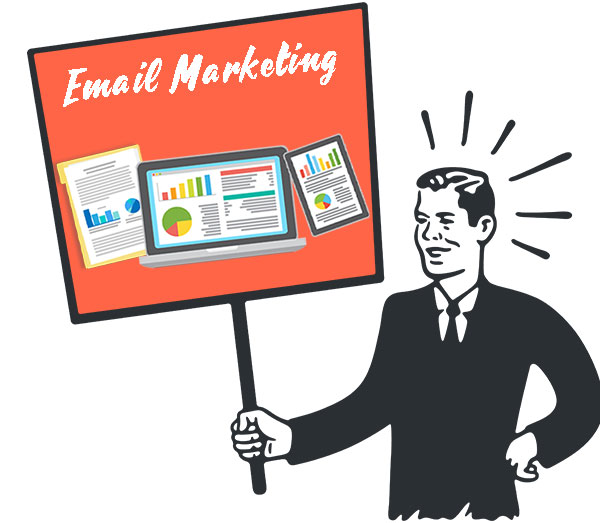
Creating an Email Marketing Strategy:
Best Practices
Feeling motivated to begin crafting your brand’s first email marketing campaign? There’s a lot to keep in mind.
Build Your Email List
- A discount code for a customer's first purchase
- A free eBook download
- Registration for a free webinar
- Subscription to a free industry newsletter
If you’re not doing so already, you should also use social media to encourage your followers to sign up for your email list and receive exclusive offers.
Decide on a Campaign Type
You’ll also need to decide on the type of email marketing campaign that best suits your needs and goals. For example, if you’re looking to increase sales of a specific product or service, then a dedicated marketing campaign with details of that product/service will be best. On the other hand, if you’re looking to establish your brand as an authority in the industry and build relationships with your leads, then a newsletter email can be a great option.
Have a Plan For Measuring Success
- Clickthrough rates
- Conversion rates
- Open rates
- Unsubscribe rates
- Bounce rates
To test different versions of marketing campaigns, many brands also utilize A/B testing, which involves sending out one email to half of the email list and a different version of the email to the other half. From there, performance measurements can help determine which version of the email is more effective from a marketing standpoint.
Make it Personal
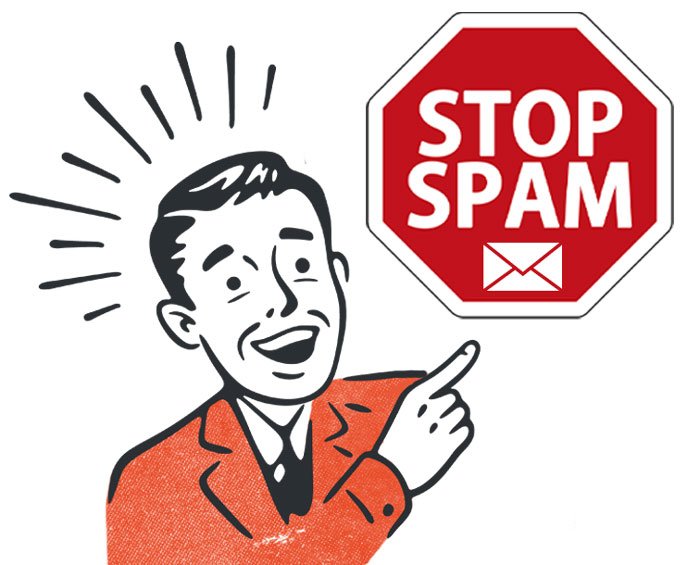
Avoid the Dreaded Spam Folder
- Including your company name and contact information/address
- Making sure each email includes a working "unsubscribe" link
- Honoring opt-out requests promptly
- Using clear subject lines
- Sending emails from a real email address (not an auto-generated one)
You can also avoid some “spam” red flags in your email content by avoiding things like excessive CAPSLOCK and exclamation point usage. This, along with “salesy” phrases like “buy now” and “shop now” may be flagged by some email platforms as spam—meaning your target audience won’t even get a chance to see your subject line.
Looking for Help With An Email Marketing Campaign?
With so much information out there, getting a handle on your brand’s email marketing campaign can be challenging—especially if you have limited experience with this complex form of marketing. Still, with lots of research (and maybe some trial and error along the way), you’ll be on the path to success. From there, you can reap the many benefits of a stellar email marketing strategy by growing your brand, building lasting relationships with your customers, and enjoying some conversions along the way.
